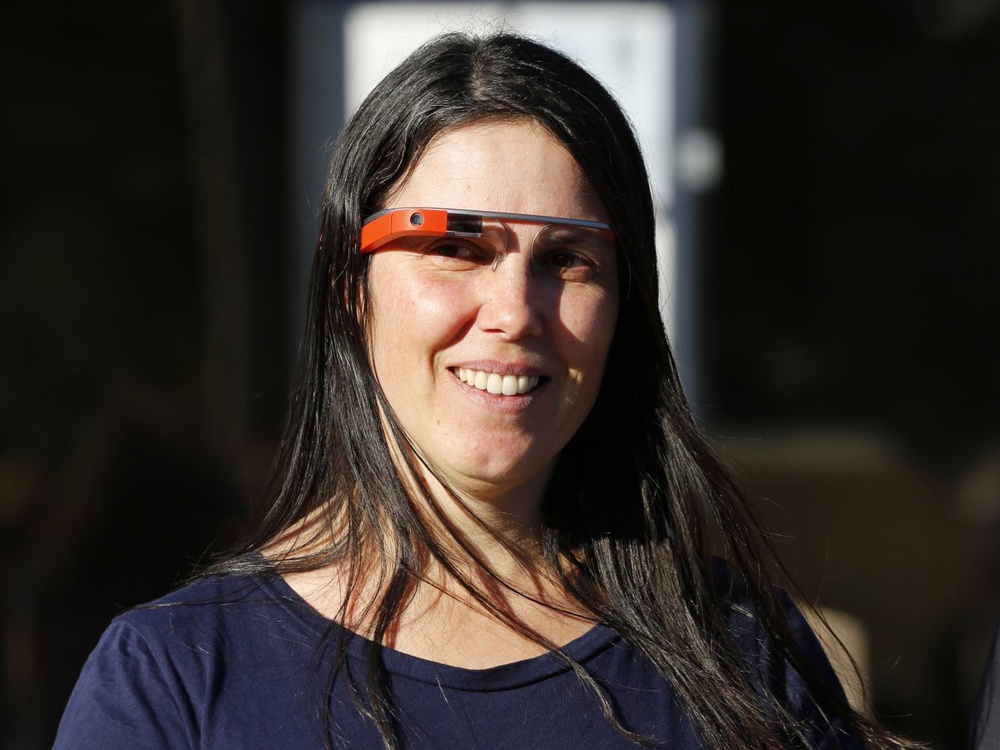
A US woman thought to be the first person to get a traffic ticket for wearing Google Glass was found not guilty Thursday, AFP reports. Cecilia Abadie was acquitted after San Diego Commissioner John Blair found she was not actively using the Google glass device when she was stopped. A speeding ticket was dismissed due to a lack of evidence. The speeding ticket alleged that she was driving at 80 miles (130 kilometers) per hour in a 65 mile-per-hour zone. The 44-year-old was charged with speeding and distracted driving on a San Diego area freeway on October 29. She acknowledged she was wearing the hi-tech eye-wear but said it was not turned on at the time. Her lawyer William Concidine appeared in court in December to deny the charges, saying at the time that there was "nothing illegal about simply wearing the Google Glass while it is not turned on." After Thursday's verdict, he said the acquittal showed that police must prove a Google Glass wearer was actually using the device while driving, just as they must show that a cellphone user was calling or texting, to secure a conviction. "That's something that can be relied on by drivers," he said. "You won't get ticketed for just wearing Google Glass or just having a phone in your car. There's still some protection against being cited unjustly and unlawfully." He told AFP there were lessons to be learned from the case. "If you believe in yourself (like Ms. Abadie) and you do not believe you committed an offense, you should contest it," he told AFP. In addition, "as new technology continues to advance and is either placed in vehicles, or used in vehicles, the law will either need to be reactive to the new technology or it will continue to remain subject to individual judge's interpretation of broadly written statutes," he said. Google Glass lets wearers take pictures, record video, send messages or perform other tasks with touch controls or by speaking commands. It connects to the Internet using Wi-Fi hot spots or being wirelessly tethered to mobile phones. Facebook, Twitter and major news organizations have already tailored applications for Google Glass, which has only been made available to developers and a limited selection of "explorers" who paid $1,500 each for the eyewear. Envisioned uses range from practical tasks such as shopping or delivering local weather reports to sharing real time video streams or playing augmented reality games in which the world is the board. Google has not announced a public release date for Google Glass but speculation centers around early 2014.





A US woman thought to be the first person to get a traffic ticket for wearing Google Glass was found not guilty Thursday, AFP reports.
Cecilia Abadie was acquitted after San Diego Commissioner John Blair found she was not actively using the Google glass device when she was stopped.
A speeding ticket was dismissed due to a lack of evidence. The speeding ticket alleged that she was driving at 80 miles (130 kilometers) per hour in a 65 mile-per-hour zone.
The 44-year-old was charged with speeding and distracted driving on a San Diego area freeway on October 29. She acknowledged she was wearing the hi-tech eye-wear but said it was not turned on at the time.
Her lawyer William Concidine appeared in court in December to deny the charges, saying at the time that there was "nothing illegal about simply wearing the Google Glass while it is not turned on."
After Thursday's verdict, he said the acquittal showed that police must prove a Google Glass wearer was actually using the device while driving, just as they must show that a cellphone user was calling or texting, to secure a conviction.
"That's something that can be relied on by drivers," he said. "You won't get ticketed for just wearing Google Glass or just having a phone in your car. There's still some protection against being cited unjustly and unlawfully."
He told AFP there were lessons to be learned from the case.
"If you believe in yourself (like Ms. Abadie) and you do not believe you committed an offense, you should contest it," he told AFP.
In addition, "as new technology continues to advance and is either placed in vehicles, or used in vehicles, the law will either need to be reactive to the new technology or it will continue to remain subject to individual judge's interpretation of broadly written statutes," he said.
Google Glass lets wearers take pictures, record video, send messages or perform other tasks with touch controls or by speaking commands. It connects to the Internet using Wi-Fi hot spots or being wirelessly tethered to mobile phones.
Facebook, Twitter and major news organizations have already tailored applications for Google Glass, which has only been made available to developers and a limited selection of "explorers" who paid $1,500 each for the eyewear.
Envisioned uses range from practical tasks such as shopping or delivering local weather reports to sharing real time video streams or playing augmented reality games in which the world is the board.
Google has not announced a public release date for Google Glass but speculation centers around early 2014.


 +7 (777) 001 44 99
+7 (777) 001 44 99















































